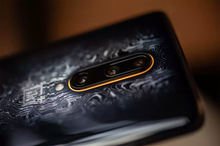iFixit co-founder and CEO Kyle Wiens has exposed how companies including Apple, Samsung, and Microsoft manipulate the design of their products and the supply chain to prevent consumers and third-party repairers from accessing necessary tools and parts to repair products such as smartphones and laptops.
Speaking during the Productivity Commission’s virtual right to repair public hearing on Monday, Weins took the opportunity to draw on specific examples of how some of the largest tech companies are obstructing consumers from a right to repair.
“We’ve seen manufacturers restrict our ability to buy parts. There’s a German battery manufacturer named Varta that sells batteries to a wide variety of companies. Samsung happens to use these batteries in their Galaxy earbuds … but when we go to Varta and say can we buy that part as a repair part, they’ll say ‘No, our contract with Samsung will not allow us to sell that’. We’re seeing that increasingly,” he said.
“Apple is notorious for doing this with the chips in their computers. There’s a particular charging chip on the MacBook Pro … there is a standard version of the part and then there’s the Apple version of the part that sits very slightly tweaked, but it’s tweaked enough that it’s only required to work in this computer, and that company again is under contractual requirement with Apple.”
He continued, highlighting that a California-based recycler was contracted by Apple to recycle spare parts that were still in new condition.
“California Apple stops providing service after seven years, so this was at seven years and Apple have warehouses full of spare parts, and rather than selling that out in the marketplace — so someone like me who eagerly would’ve bought them — they were paying the recycler to destroy them,” Wiens said.
Weins also pointed to an example involving a Microsoft Surface laptop.
“[iFixit] rated it on our repairability score, we normally rate products from one to 10; the Surface laptop got a zero. It had a glued-in battery … we had to actually cut our way into the product and destroyed it in the process of trying to get inside,” he said.
[…]
The other major point that was covered during the Productivity Commission’s public hearing was whether there is plausibility to introduce a labelling scheme, much like one that exists in France, in Australia.
[…]
Based on his observation, Weins said the adoption of the French index has been “pretty universal” across all five categories. He also pointed out that a recent Samsung survey showed 86% of French citizens say that the index impacts their purchasing behaviour while 80% said they would give up their favourite brand for a more repairable product.
“This is really substantially driving consumer behaviour,” he said.
For consumer group Choice, the possibility of introducing a labelling scheme to improve right to repair in Australia could work.
“We know from experience, particularly with the water and energy labelling scheme, that if you want manufacturers to improve the quality of products, start by rating and ranking them,” Choice campaign and communications director Erin Turner said during the hearing.
[…]
Source: iFixit CEO names and shames tech giants for right to repair obstruction | ZDNet

Robin Edgar
Organisational Structures | Technology and Science | Military, IT and Lifestyle consultancy | Social, Broadcast & Cross Media | Flying aircraft

